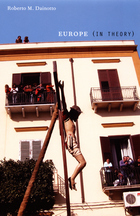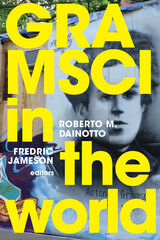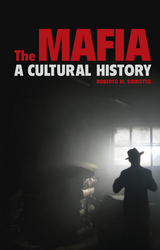
Dainotto synthesizes a vast array of literary, philosophical, and historical works by authors from different parts of Europe. He scrutinizes theories that came to dominate thinking about the continent, including Montesquieu’s invention of Europe’s north-south divide, Hegel’s “two Europes,” and Madame de Staël’s idea of opposing European literatures: a modern one from the North, and a pre-modern one from the South. At the same time, Dainotto brings to light counter-narratives written from Europe’s margins, such as the Spanish Jesuit Juan Andrés’s suggestion that the origins of modern European culture were eastern rather than northern and the Italian Orientalist Michele Amari’s assertion that the South was the cradle of a social democracy brought to Europe via Islam.

Contributors. Alberto Burgio, Cesare Casarino, Maria Elisa Cevasco, Kate Crehan, Roberto M. Dainotto, Michael Denning, Harry Harootunian, Fredric Jameson, R. A. Judy, Patrizia Manduchi, Andrea Scapolo, Peter D. Thomas, Catherine Walsh, Pu Wang, Cosimo Zene

Dainotto traces the development of the mafia from its rural beginnings in Western Sicily to its growth into a global crime organization alongside a parallel examination of its evolution in music, print, and on the big screen. He probes the tension between the real mafia—its violent, often brutal reality—and how we imagine it to be: a mythical potpourri of codes of honor, family values, and chivalry. But rather than dismiss our collective imagining of the mafia as a complete fiction, Dainotto instead sets out to understand what needs and desires or material and psychic longing our fantasies about the mafia—the best kind of the bad life—are meant to satisfy.
Exploring the rich array of films, books, television programs, music, and even video games portraying and inspired by the mafia, this book offers not only a social, economic, and political history of one of the most iconic underground cultures, but a new way of understanding our enduring fascination with the complex society that lurks behind the sinister Omertà of the family business.
READERS
Browse our collection.
PUBLISHERS
See BiblioVault's publisher services.
STUDENT SERVICES
Files for college accessibility offices.
UChicago Accessibility Resources
home | accessibility | search | about | contact us
BiblioVault ® 2001 - 2024
The University of Chicago Press









